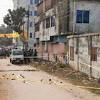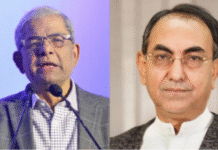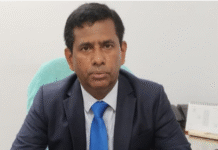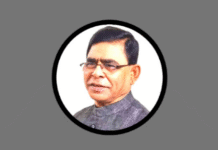By Annie Gowen
Police in Bangladesh said Friday that they had arrested a local Islamist leader after an attack on an Italian missionary for which the Islamic State has asserted responsibility. It was the third attack on a foreigner in Bangladesh since September to have been claimed by the terrorist organization.
In Twitter messages Thursday, the Islamic State said it tracked and targeted “the Italian Crusader foreigner” before shooting him with a “silenced pistol” and “severely injuring him,” according to a report from the SITE Intelligence Group, which tracks the online activity of extremist groups.
The missionary, the Rev. Piero Parolari, 57, was set upon by gun-wielding assailants in northern Dinajpur district Wednesday. He survived with a head wound, but two other foreigners attacked in recent weeks — an Italian aid worker and a Japanese agricultural worker — did not.
In its online magazine released this week, the Islamic State made clear that it has set its sights on Bangladesh as the next battleground in the group’s global expansion. The country also has been grappling with a series of brutal stabbings of secular bloggers by religious fundamentalists allegedly inspired by the writings of al-Qaeda.
The twin perils are prompting fears that Islamist extremism is rising in the majority-Muslim democracy, which aside from occasional eruptions of political street violence has been largely peaceful and remains an ally of the United States.
The government of Sheikh Hasina, the country’s prime minister, has acknowledged the seriousness of the attacks on foreigners. But it says they are the work of her political opponents who have hired local thugs to carry out the violence, not of sophisticated international terrorists.
“All the evidence shows us it’s not ISIS,” said Sajeeb Wazed, the government’s chief adviser on information technology and son of the prime minister, using another name for the Islamic State. Four suspects have been arrested in the slaying of the Italian aid worker, he noted. “They have no affiliation to known terrorist organizations. They’re just criminals.”
The violence has shaken members of the diplomatic and aid communities in Bangladesh, many of whom have hunkered down indoors and stopped walking, cycling and taking taxis. A large AIDS conference was recently deferred here and other events have been canceled. The U.S. Embassy, in a recent communique, warned that the terrorist threat remained “real and credible” and that attacks against Westerners remain a concern in Bangladesh.
On Sept. 28, the Italian aid worker, Cesare Tavella, was fatally shot while jogging in what had been the relatively safe diplomatic corridor of Dhaka. On Oct. 3, the Japanese agricultural worker, Kunio Hoshi, was fatally shot as he headed to his fields in the north of the country. The Islamic State later asserted responsibility for both killings as well as for an attack on a police checkpoint.
Ruhul Amin, superintendent of police in Dinajpur district, said Friday that a local leader of the Islamist Jamaat-e-Islami party, Mahbubur Rahman Bhutto, had been arrested in the attack on Parolari, who was a Catholic priest and physician. Amin said while it was too early to establish a link between that incident and the two other killings, the attacks were carried out in a similar fashion, with the perpetrators traveling on motorbikes.
Many now fear possible violence in the coming days after courts upheld death sentences for Ali Ahsan Mohammad Mujahid and Salahuddin Quader Chowdhury, who were convicted of committing atrocities during Bangladesh’s war for independence in 1971. Some in the government said that the recent attacks on foreigners could be attempts to disrupt this legal process.
War-crimes trials launched by the Hasina government in 2010 have been widely criticized by the international community for being pro-prosecution, according to groups such as Human Rights Watch and others.
Azad Majumder contributed to this report.
Source: WashingtonPost










